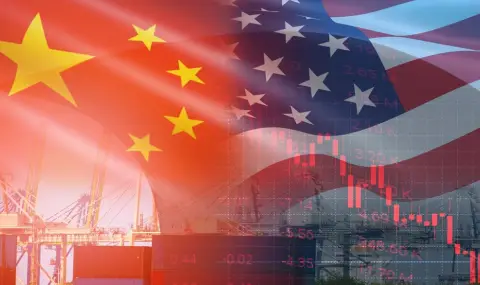In the US, increased tariffs on Chinese goods and technologies that are critical to the transition to clean energy.
US Trade Negotiator Catherine Tay's office announced on September 13th the introduction of increased tariffs on Chinese electric vehicles (from 25% to 100%), batteries and their components for electric vehicles (from 7.5% to 25% ) from September 27 %), solar panels (from 25% to 50%), syringes and needles (from 0% to 100%), quay cranes for ship-to-ship transfers (from 0 to 25%), steel and aluminum products (from 0% - 7.5% to 25%), respirators and protective masks from (0% - 7.5% to 25%), as well as some minerals important for industry (from 0 to 25%).
US authorities intend to further increase tariffs on respirators and protective masks to 50% from January 1, 2026. Tariffs on lithium-ion batteries for ordinary cars will be increased from 7.5% to 25% from January 1 2026, on medical gloves from 7.5% to 50% from January 1, 2025 and further increased to 100% from January 1, 2026, natural graphite and permanent magnets from 0% to 25% from January 1, 2026 , semiconductors - from 25% to 50% from January 1, 2025. In total, more than 380 product items will be affected.
When U.S. officials announced their intention in May, the tariffs were expected to take effect on August 1, but adoption of the restrictions was delayed after the trade representative's office needed more time to consider a reversal contact from the US public and finalization of the restricted product list. American companies can petition the authorities to request exemption from tariffs on Chinese products.
Since 2018, China's electric vehicle imports have risen from USD 7.2 million to USD 388.8 million, but only account for 2% of all US electric vehicle imports, according to US Federal International Trade Commission. But US automakers fear that Chinese-made electric vehicles, which sell for as little as USD 10,000 (two to four times cheaper on average), could flood the US market. US officials are also considering increasing tariffs on tungsten, polysilicon and crystal wafers from China.
The decision was made by the Washington administration after more than two years of reviewing tariffs on Chinese products introduced by former President Donald Trump. At the same time, the current administration left in place tariffs imposed by Republicans on more than $300 billion worth of Chinese goods - from toys and T-shirts to routers and industrial equipment - at rates ranging from 7.5% to 25%.
As Lane Brainard, head of the White House National Economic Council, said, the decision was made to ensure the diversification of the US electric vehicle industry away from the dominant Chinese supply chain. According to her, such "firm and purposeful" The tariffs are needed to counter Chinese government subsidies that have led to overinvestment and overcapacity.
Washington is pouring hundreds of billions of dollars of its own subsidies into America's electric vehicle, solar and semiconductor sectors. “The 100% tariff on electric vehicles here reflects a very significant unfair price advantage that Chinese electric vehicle manufacturers, in particular, are using to dominate auto markets in other parts of the world at breakneck speed,” Brainard said.
American economists and analysts warn that a series of new tariffs on imports from China will have very severe consequences. Democratic President Joe Biden's administration has largely ignored demands from automakers to reduce tariffs on graphite and critical minerals used in electric vehicle batteries as they continue to rely on Chinese supplies. The decision angered some US companies because higher tariffs would disrupt supply chains, including for semiconductor products. "Since taking effect, the tariffs have collectively cost American businesses and consumers $221 billion and have failed to change China's troubling trade policies and practices," Jason Oxman, head of the Information Technology Industry Council, said in a written statement. According to him, the administration's decision “is based on a stupid and ineffective customs tool, without any evidence of their effectiveness”. As Oxman pointed out, the US has repeatedly resorted to increasing tariffs, ignoring industry concerns about the impact on the economy and supply chain sustainability. At the same time, Gary Hufbauer, an expert at the Washington-based Peterson Institute for the World Economy believes that US trade policy is limiting Americans' access to high-quality and cheap foreign goods, and the new tariffs will deprive American consumers of the right to buy cheap Chinese electric cars. .
William Alan Reinsch, a senior adviser at the Washington Center for Strategic and International Studies (activities recognized as undesirable in Russia), is confident that the restrictions will hamper US efforts to switch to renewable energy sources. “Trade liberalization with China will allow U.S. manufacturers to significantly increase production through access to cheaper raw materials and provide consumers with affordable goods needed to meet decarbonization goals,” he said.
On September 26, Chinese authorities demanded that the US cancel all increased tariffs on Chinese products to ensure the security of global supply chains. Beijing has repeatedly made serious representations to the US government on this issue, and the World Trade Organization “has long recognized that the US is breaking the rules,” said Chinese Ministry of Commerce spokesman He Yongqian.
